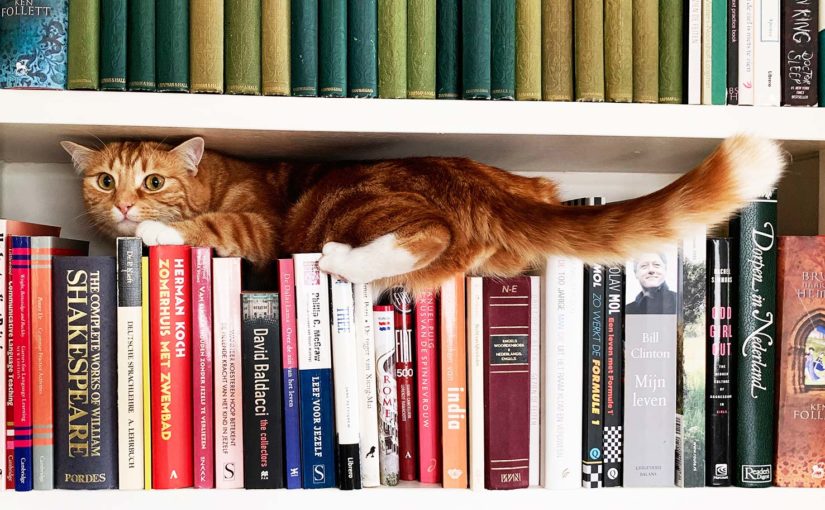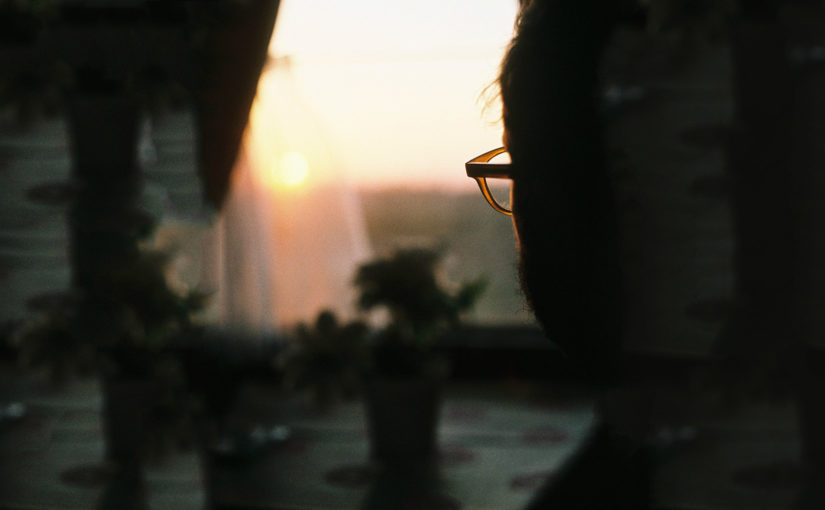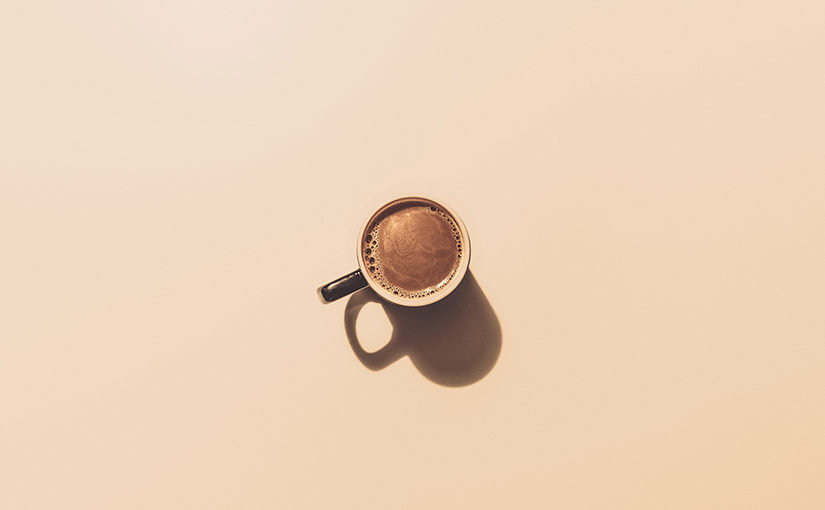As noted in the previous post, I attribute better-than-usual success with personal development this year due to some key insights, including using experiments to trial different approaches to self-improvement. Here were the experiments that I found worthwhile:
Regular exercise (of the not-too-hard variety)
I find that whenever I make regular exercise a habit, I start making progress on all other aspects of my life. It’s like my brain isn’t fully able to adapt and change without it. Since most of my life I’ve struggled with getting in regular exercise, I find it interesting that I was able to successfully make it a strong habit this year. Part of the secret was moving a few blocks away from a nice gym which was easy and pleasant to visit. For a while, I religiously tracked my weekly gym visits, and this was the sole habit I pursued until I deemed that this habit had taken root.
I used my past failures to inform my new approach. In the past, I would stop exercising because it was either unpleasantly difficult and reluctance eventually overpowered my motivation, or because I would get injured and by the time I healed, I would have to build inspiration and motivation all over again.
So this time I was super cautious about listening to my body to avoid injury and avoided classes, as that’s where I often fell prey to injury.
I also committed to not making my workouts too hard. My hypothesis was that if I just kept showing up, my workouts would eventually get more intense, and by that time I would have developed a better kinesthetic sense and more musculature that would help protect against injury.
Intermittent fasting
Obligatory note: fasting and following random internet on the internet can be dangerous! Consult your doctor and be aware when you’re outsourcing your thinking.
September was the first time I tried regular intermittent fasting and, while not always fun or easy, it really worked for me. I was looking for a habit to pick up that would help me shed a few pounds without having to devote a bunch of time and attention to it. Several years ago I read this article chronicling the former Evernote CEO’s success with fasting. I became convinced of fasting’s merits and read tons of books on the subject and… I even tried fasting a few times! The trouble was that I tried to go from 0-60 in one go. After a 48-hour fast, fistfuls of hair fell out and I wrote fasting off as “not for me.”
This year I realized that instead of trying to go so extreme, I should just try intermittent fasting. I didn’t think a 16-18 hour fast would be significant enough to be effective, but I was wrong. Intermittent fasting seems to brilliantly regulate my hunger and satiety signals so that I naturally eat a more appropriate amount of food—no calorie counting or diet neurosis required! With intermittent fasting, I feel more energetic and healthier, not to mention I save time and money because breakfast or dinner is no longer a thing. Fasting seems to lower my inflammation, which I suspect may be because I am giving my system the time it needs to fully digest food instead of piling on more.
While I don’t find intermittent fasting particularly fun or easy, I do find it feels more natural the longer I do it. I’m glad I committed to doing a 30-day initial trial before saying “fuck this,” as it took me several weeks to adjust. I actually now crave fasting, especially after a time of feasting (I’m looking at you, holidays).
One interesting side note: When I was adapting to fasting, I felt the same feeling as after intense aerobic activity. After doing IF for some time, I found that I could run literally twice as long, whereas before it didn’t seem to matter how much I trained, I wasn’t able to do much to move the needle on my endurance.
Cold exposure
Several years ago I tried to get on the Wim Hof train. For those who missed the trend, Wim Hof is the “ice guru” who got everyone excited about ice baths. But even after reading a whole bunch about the benefits of cold exposure, I found it difficult to apply the knowledge. After all, cold showers initially feel pretty awful. And ice baths?? No thanks.
But this year I listened to this episode of “The Kevin Rose Show” where Kevin talks about how his mood improved as a result of cold exposure. Apparently there’s some physiological explanation, but all I needed to know was that I could improve my mood with only a few minutes of cold torture—what a deal! So I started doing a short amount of cold at the end of my shower and aimed to make it longer each time. And… it works! I do indeed experience greater happiness (sometimes a crazy amount, like the day I came to work and greeted my colleagues with, “Hello, beautiful people!”). But I find it does much more than that: it boosts my immunity, fosters a sense of aliveness, and bolsters my ability to handle mental stress. Seriously, all those benefits in like two minutes!
The Wim Hof method is to do a bunch of breathing techniques to gain greater control over the body. The Alexandra Heller method is to internally scream “I CAN DO IT!” over and over, which effectively drowns out all other thoughts. Cold exposure and affirmations for the day, done.
Habit tracking
This year I broke down my goals into daily activities and then every day checked “yes” or “no” as to whether or not I did the thing that makes progress on that goal. When I started doing this, the implications of wasting time became a lot clearer. I naturally stopped almost all TV or movie watching, as it became more obvious that e.g., either I watch TV or complete 20 minutes of learning German. I use the Loops – Habit Tracker app (Android / iOS), but there’s a bunch of similar apps.
Traction dashboard
To track non-daily activities and take a broader view, I created a traction dashboard that I update every week and month. It helps me understand if I’m on target to my goals with e.g., minimizing alcohol consumption, saving, donating, and learning. “What gets measured gets managed,” and all that. To capture qualitative data, I also journal reflections about what worked and what didn’t in a particular period of time.
Volunteering
This year I volunteered to write interviews with Giving What We Can members. My goal was to support the community by sharing different people’s perspectives on giving to high-impact charities. I’m not sure this was a particularly useful activity for others, but it was a lovely excuse to speak with interesting people whose values I align with. Selfishly, I was hoping that this activity would inspire me to make my 10% giving pledge. This worked, so I’ll call it a success, and it was nice to contribute my time to a cause I believe in.
Public speaking
I previously avoided public speaking because I get super nervous, but I got motivated to face my fears when Tim Ferriss mentioned that public speaking is a great tool for personal growth: what you are bad at in public speaking shows up in other areas of your life. I found his advice to be true—public speaking (often painfully) shows me my uneasiness with myself and my ideas, and working on public speaking has been a high-impact way to improve.
Gratitude journaling
For over a decade now I’ve wanted to jot down 3-5 things every day that I’m grateful for, and this year I finally made it happen. The secret was discovering the gorgeous “Presently” app (Android); ever since installing it I’ve had no trouble keeping this journal.
Gratitude journaling has helped me better understand what brings happiness into my life. Curiously, most of the things on my gratitude journal have little to do with what I think will make me happy. Having good conversations with people is nowhere on my goals list, but frequent on my gratitude list, so I probably need to reexamine my goals list so I don’t climb the wrong mountain.
I hoped gratitude journaling would help me train my mind to notice positive things instead of just problems. While it’s hard to objectively judge whether it’s working, I think it is (and I’ll happily take a placebo effect).
Consciously creating routines
Good routines are like a recipe for a good day. Eventually I’d love to have morning to evening planned out, but that’s a work in progress. So far these are the pieces that are working:
Weekday morning routine: wake up > run/gym > cold shower > meditate. I created this routine during a period when I felt like I was numbly following the motions of each day. While I don’t do it every day, I try to follow it at least 3x per week to feel on top of things, alive, and present.
Weekend routine: Fridays—take care of chores while listening to an audiobook and update my traction spreadsheet. This way I don’t feel like my whole weekend goes to maintenance. Saturdays—morning writing meetup. Sunday—visit favorite coffeeshop (more writing!) and then prep food for the week.
Moving money to savings/investment first
Early this year I tried (yet again!) to follow a budget, but it felt like too much effort to track everything, especially in cash-only Berlin where there’s no trail of credit card transactions. After rereading the ridiculously-titled personal finance book, I Will Teach You To Be Rich, I followed Ramit Sethi’s advice to take money out of my bank account as soon as it came in and move it to savings and investments. Ideally this happens automatically but that’s not feasible for me, so I just set a calendar reminder. I was motivated to not just move money back into my checking account because I know that the amount I took out is the monthly amount for my savings goal for the year, and I won’t hit that target if I take the money out. What tends to happen is I freeze non-necessary purchases for a few weeks, which often results in buying less. So it’s more like a feast-famine approach with money, and feeling indulgent sometimes and thrifty other times is a better match for my personality than eternal moderation.
Blogging
I really enjoyed writing personal blogs regularly this year. And apparently if you write enough blogs, your inner dialogue just becomes a sort of nonstop attempt at writing a blog post, which I guess is more productive than random thoughts and judgments. Last year one of my biggest resolutions was to create, and while I’d still love to express myself through animation, I feel pretty creatively satisfied. I now have Saturday and Sunday mornings penciled in for writing at a cafe, and they’re absolutely the highlights of my week.
Journaling
This was the first year I regularly journaled, and I agree with those who say that journaling is free therapy. Journaling has been an excellent way to move circling thoughts to their conclusion.
Learning
It’s hard to make time to learn new things as an adult, but it seems entirely necessary to do so. The world is changing and you have to keep up. I feel equal parts frustrated and successful with the amount of learning I accomplished this year. I ascertained a small amount of knowledge in German and After Effects, and while it’s a drop in the bucket of what I’d like to have learned, I am happy that I was able to gain at least this amount of knowledge.
What seemed to work for German was spending some time every day studying, but After Effects was too involved for daily practice. In the end I was unable to pursue either consistently, so in 2020, I would like to figure out how to make learning a consistent part of my life, even in times of stress and busyness.
Letting go
Perhaps this is a weird addition to a list of controlling activities. It was sparked by rereading Michael Singer’s The Surrender Experiment, an autobiographical account of Singer’s 40-year experiment in surrendering to life’s unfolding. What I took from the book was a desire to attempt to surrender to whatever current situation I find myself in. I found this particularly helpful in periods of stress and overwhelm. For example, in situations of overwhelm, my impulse is to try to make the situation be different. But because making the situation different is often impossible, resisting just makes me anxious. So instead of resisting, I now do my best to surrender and just do my best to serve the situation as best as I can, letting go of the outcome. I also am working to surrender overthinking what I’m doing. I surrender and say: “This is what’s in front of me, I’m going to serve it the best I can.”
Similarly, I try to surrender to emotions. If I let myself release into a feeling without trying to change it, the emotion seems to alleviate more quickly.
Training attention and focus
Fostering the ability to focus deeply for an extended time period is something I’ve been pursuing since reading Cal Newport’s superb Deep Work. This year my ability to focus seemed to get far better, I believe mostly due to training single-tasking through writing sessions. I still have a fantasy of regularly completely immersing myself in a project for 4+ hours, but my work and schedule don’t particularly lend themselves to that. Maybe one day!
Meditation
I had a frustrating time with meditation this year. For a while, I just sat through it to give myself a gold star for the day, but I didn’t feel like much was improving. I cycled through the popular meditation apps and some were helpful, but I always landed in the same uninspired place.
Finally, a friend suggested a book (Deep Meditation – Pathway to Personal Freedom by Yogani) and I tried its technique: repeating “I am” as a mantra. I didn’t like this mantra. I wanted an “om” or “mu” mantra that I could believe was magical. An English mantra affirming one’s existence was most certainly not magical.
But it worked. Pretty soon I found myself disappointed when I only had ten minutes for meditation. I found I could repeat the mantra and find space between the wave of emotions that was my self-concept, the egoic clinging onto being good and not being bad, and all the activities necessary to assert that claim. Then it became a habit. This silence became something I hungered for, something I felt incomplete without spending time in. It became a point of reference for my day, a place of refuge.
Curbing alcohol consumption
I love many things about alcohol, but each of alcohol’s positive attributes comes paired with an attribute that’s equally or more negative. In particular, good sleep is a requisite for progress on so many areas, yet alcohol is a strong disruptor of sleep (yes, even a “healthy” glass of red wine). It makes no sense to me to sacrifice sleep quality for alcohol: 1 hour of feeling elevated in exchange for a whole day where you don’t feel as well-rested and energetic as you could have? Hmm, no thanks.
The morning after a social situation where I choose not to drink, I reflect on how happy I am to have awoken so refreshed and energized, and how grateful I am for not drinking. This aligns with an adage I try to adhere to: make choices that make tomorrow better.
Curbing sugar consumption
Like a drunk is to alcohol, like a heroin addict is to heroin, I am to sugar. The times I’ve managed to wrestle myself free from sugar’s grips, I’ve contemplated getting a tattoo to remind myself that sugar is my kryptonite and I should leave it be. Like alcohol, sugar is physiologically addictive, which means your body craves it, so you have to wait through a period of craving when you give it up. After you get to the other side of this craving (really only three days), not consuming it is pretty easy.
I committed to giving up sugar several times this year, but I was only successful when I made a pact with a colleague. I find that without sugar my energy is more stable and I don’t feel as tired. I started viewing sugar items as simply “not for me,” which was a helpful mantra.
Cutting out sugar, I felt so many things improve. I felt more healthy and energetic, bloating melted away, and the ever-present sugar craving was replaced by contentment. Apples became a relished treat.
Community organizing
I stepped into the role of community organizer in several ways this year. I put on clothing swaps, organized a Meetup group, and started a public speaking club. I’m still not super excited about community organizing, but I now feel more empowered to create the community I want instead of waiting to find one to join.
Donating on a recurring basis
It’s difficult to look at a large sum of money and donate it at the end of the year, so this year I set up recurring monthly donations. This made donating 10% of my income easier than in previous years. I am so fortunate to be in a position to give, and there are so many desperate needs in our world. I’ve learned to regard this money as “not mine” and offer it up as thanks to all the fortunate experiences I have had that have brought me to this place of abundance.
This year I donated to Cool Earth, The Good Food Institute, GiveDirectly, Mayan Families, 5 Gyres, Mercy for Animals, and a friend’s orphanage. For those who are cynical about donating (“it just ends up in admin costs!”), please look into reputable charities whose impact is audited. GiveWell has some well-researched recommendations, and if you’re in Germany also check out Effektiv Spenden.
If we don’t help those who are dedicating their lives to address the problems in the world, who will? Check out Giving What We Can and Effective Altruism for more inspiration.
Keeping these endeavors going in 2020 will be a challenge; I see how quickly I abandon good habits when stressed or traveling. But I hope that, by discovering and noting the habits that work for me, I have formed a foundation of positive habits that I can return to again and again.





